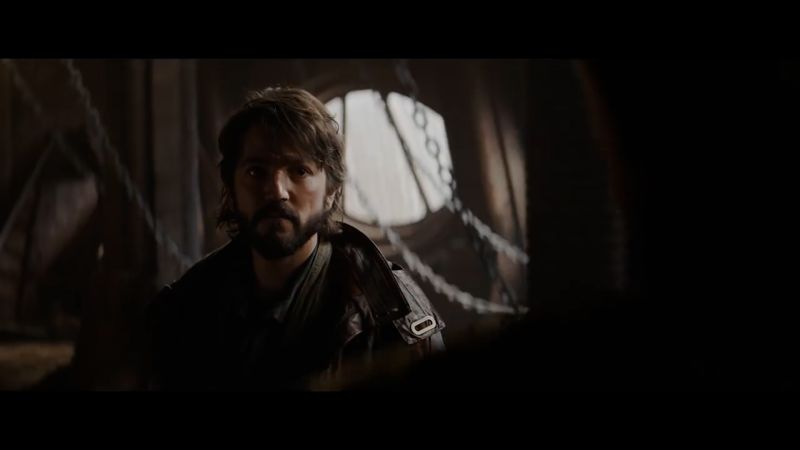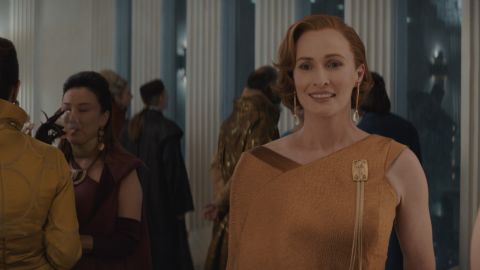
CNN
—
A prequel to a prequel, “Andor” brings a gritty tone and look to the “Star Wars” universe, as much the washed-out landscape of “Blade Runner” as George Lucas’ far-away galaxy. Yet whatever promise that entails is mostly lost in flabby storytelling, essentially stretching what would have been a 10-minute movie prologue over the first three episodes.
Disney+ has wisely decided to launch the 12-episode prequel to “Rogue One,” starring Diego Luna as the spy Cassian Andor, with those three episodes, providing a somewhat better sense of the series’ framework than the plodding first installment. It takes until the fourth, however, for this origin story’s plot to come into focus, and by then, “Andor” has already become a bit of a snore.
Created by veteran screenwriter Tony Gilroy, who received screenplay credit for “Rogue One” and played a role in its reshoots, “Andor” proudly wears on its sleeve the fact that it’s not another “Star Wars” series intended to wow fans with cameos (although there will be some of those) or sell plush toys. Gilroy seems more interested in telling a terse spy yarn with a caper component – think “The Guns of Navarone,” only with spaceships, droids and the occasional alien.
Following a less-trodden path, though, doesn’t excuse moving at the pace of a wounded Bantha, bogged down by flashbacks to the protagonist’s childhood. Nor do these early episodes do enough to distinguish the shifting cast of supporting characters, a group that doesn’t provoke much more than indifference.
Andor’s eventual fate is already known, so the thrust of the show involves fleshing out how he made the leap from hating the Empire, and its arrogance, to engaging in the fight against it.

Stellan Skarsgård plays a central part in that regard, at least in the early going, and Genevieve O’Reilly makes an appearance as Mon Mothma, reprising the role she played in “Rogue One,” although don’t expect to see her right away.
As for the Empire, the organization is less about the Sith in this incarnation than frontline soldiers, a group characterized by bureaucratic infighting and more than a little middle-managerial incompetence. While that conveys an inherent message about totalitarian states, like the good guys, few of the bad guys make much of an impression.
The vastness of the “Star Wars” galaxy and the various time frames it occupies create a canvas that can accommodate all kinds of stories, perhaps more readily than its Disney brethren at Marvel given the interconnected nature of its universe. This clearly isn’t “The Mandalorian” or “Obi-Wan Kenobi,” with all those moments designed to make hardcore fans swoon, and in theory, that’s fine.
The problem is there’s little initially to foster much enthusiasm about “Andor,” which mostly feels like an intriguing test of how and where Lucasfilm can push those parameters and bend the mold – in this case, by producing what amounts to an anti-“Star Wars” “Star Wars” series. Unlike the rousing action in “Rogue One,” the series doesn’t deliver the level of thrills required to sustain such an extended detour as it methodically sets up the story.
Charitably, the experiment represents an act of creative independence that merits praise just for trying it. Less charitably, “Andor” feels like a series afflicted by a touch of its own imperial arrogance.
“Andor” premieres with its first three episodes September 21 on Disney+.
